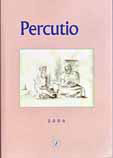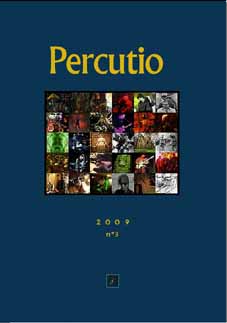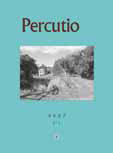Poem
as Ecosystem: Five Meandering Notes on
Graham Lindsay's The Subject
by Scott
Hamilton 24.8.
2005
1. 'The painter should
be painting'
The Subject is
not a famous volume of poetry. Published
by Auckland University Press in 1994,
the book received some tepid reviews,
and has barely appeared on the radar of
critics and anthologists. The Subject's
neglect can perhaps be related to its
author's peculiar position in New Zealand's
literary industry. Graham Lindsay is often
identified with what Alan Loney has called
New Zealand literature's 'other tradition':
his first book was published by Loney's
Hawk Press, and his short-lived Morepork
was one of the most loved of New Zealand's
'little magazines'. But over the years
Lindsay has published extensively in 'mainstream'
outlets like Landfall and the Listener,
and his work has always had a sense of
place which seems to tug at the nationalist
and regionalist themes that have dominated
our literary history.
By the early 1990s postmodernism
had become very fashionable in the English
Departments of New Zealand's universities,
but most of the work published by the
big presses remained fiercely immune to
the influence of Barthes and Derrida.
Visits by Language poets Charles Bernstein
and Lynn Heijinian polarised the literary
community.
It is difficult to relate
The Subject to the quarrel between
the 'two traditions'. Lindsay's recalcitrance
may have irked the mainstream, but his
rather rustic subject and strong individual
voice would make him an unlikely postmodernist.
Neither wing of the literary
community is likely to have been impressed
with Lindsay's obsession with the problem
of representing reality in language. Lindsay
refused either to take his language for
granted, or to surrender to the free play
of the signifier. Reviewing The Subject
in Landfall, Margaret Mahy signalled
her impatience:
Lindsay
is least enjoyable when he is gazing at
his navel, worrying about reality and
language, and at his best when he is describing
the world around him. Instead of worrying
about his palette, the painter should
be painting.
2. Daring to see?
But there is little word-painting
in The Subject, even when Lindsay
is not 'gazing at his navel'. Most of
the book's poems are constructed
out of fragments of description. Lindsay's
fragments are always more than tangentially
related, partly because almost all of
them are drawn from the 'real world' of
the South Island of New Zealand, but mainly
because of their author's artfulness.
The Subject reminds me of Pierre
Reverdy, who tried to create a 'Cubist'
poetry out of bits and pieces of language.
A Reverdy poem is a sort of grid: its
images do not make narrative or descriptive
sense, but they may 'charge' each other,
to the extent that they are interestingly
juxtaposed:
A fading star
A woman's dark hair
The lantern of the
departing train
Another name worth mentioning
is Tomas Transtromer, whose work might
easily have influenced The Subject.
Robin Fulton has discussed the method
of Transtromer's early poems:
A series of contrasts
is described — light-dark, dreaming-awake,
stasis-motion, interior-exterior —
and they are related to each other in
such a way as to define the limits of
an area at whose undefined centre some
sort of epiphany is experienced...the
poet seems to say 'I have aroused your
expectations in the right direction; the
rest depends not on my further definition
but on your imagination and experience'.
But, as Margaret Mahy
noted with dismay, Lindsay cannot resist
'further definition'. Again and again
The Subject worries about the difficulty
of relating language and reality. 'Cloud
Silence' is typical:
The point is
to stop writing. Stop
using language to protect
yourself from the full
implications of the
world — the world says
Look at me, I dare you
to
I dare you to see
Lindsay complains about
the difficulty of finding words to fit
reality, and fantasises about getting
'beyond' poetry altogether by accessing
a reality 'before' language. It's no wonder
Mahy treated him like a frustrated landscape
painter. Yet Lindsay's practice
as a poet belies the naive realism of
his ruminations on language: the poems
of The Subject are not simple attempts
to 'take down' some pre-existing 'reality',
but very artful constructions which shape
as well as apprehend the reality they
reach through language.
3. Tuning in
How can we theorise the
poet's practice, when the poet himself
has been unable to do so? I turn to the
term abstraction, which I learned
from Bertell Ollman's book Dance of
the Dialectic: Steps in Marx's Method.
Ollman argues that humans think in abstractions
snatched from an almost infinitely complex
reality:
You use abstraction all
the time. For instance, when you go to
a concert, or listen to a piece of music
for the first time, you might focus first
on a single instrument, or a single part
of the performance, to get a preliminary
sense of the whole. Once you have done
that, you will probably go on to 'tune
in' to other instruments, and other parts
of the composition...
For Ollman, dialectical
abstractions distinguish themselves by
including the 'change and contradiction'
that gets left out of 'the tidy categories
of ideology'. Ollman emphasises the flexibility
of the dialectical method: because reality
can only be accessed by abstraction, and
abstraction is always partial, different
abstractions can cover some of the same
reality. We must abstract again and again,
from different vantage points in time
and space, to understand any complex phenomenon.
'Common sense' or ideology may insist
on the identity of reality and a single
abstraction, but dialecticians know better.
Ollman is a Marxist, but he's happy to
acknowledge that plenty of non-Marxists
have thought dialectically, from Heraclitus
to William Blake to Roy Bhaskar. EP Thompson
has ventured that all visionary poetry
is dialectical, and that Blake's command
of the method easily rivals Hegel's.
In The Subject,
Lindsay abstracts details of the teeming
world he lives in, and creates larger
abstractions by putting these details
together, or by leaving them lying around
together. The best poem in the book deploys
a series of powerful abstractions to apprehend
a reality than can rightly be called visionary:
Backwater
Sun above sea
bush out back. Raising
a hand —
remote as a moon or star
stunning glib
3D effect, like a frame
of mind behind a mirror
image.
Herekino, Matapouri,
Anaura, Waimarama, Okains
—
a flock of names commercialising
the scenery, screening
ineffability.
'Come on in, the water's
fine!'
Where do we get such ridiculous
lines? The STS Spirit
of New Zealand
mainmast doubling as a
funnel
motors sideways into the
stream.
Going off on a note
notebook on forearm
like a waiter taking orders:
the seagulls want fat
tuatua
waves complain of sand
in their sandwiches.
Shell crockery tinkles
in the backwash
'Backwater' is a poem
which pulsates with 'contradiction and
change', but whose ambiguities and instabilities
speak to the complexity of its subject
matter, not of any hankering after 'difficulty'
for its own sake. Lindsay's opening sentence
gives us a couple of the most recognisable
motifs of New Zealand literature: following
a title like 'Backwater', they suggest
that we are about to be treated to an
extra thick slice of Kiwi pastoral realism.
But the poem's second sentence introduces
an unexpected self-consciousness which
is all the more disturbing because it
does not carry a great deal of self-confidence.
Lindsay is like an artist who paints himself
into his picture, but then begins to doubt
his own likeness.
Lindsay is not shy of
alluding to philosophy, and whether he
intends it or not his second and third
lines remind me of GE Moore's famous attempt
to prove his own existence to the audience
of a Cambridge lecture in 1925. Defending
the possibility of 'propositions that
are known for certain to be true', Moore
raised his arm and said 'I know this to
be part of my body', adding 'I know that
my body has always existed on or near
the surface of the earth, and never on
the moon'. Lindsay links scepticism about
the physical with scepticism about the
'frame/ of mind, behind a mirror image'.
The poem's third sentence
brings an abrupt shift of focus, as Lindsay
abstracts a 'flock of names' whose import
seems somewhat mysterious. Perhaps 'Herekino,
Matapouri/Anaura, Waimaramara, O'Kains'
are all 'Backwaters': why, though, should
they be guilty of 'commercialising/ the
scenery'? Because they are busy 'screening
ineffability'? Are they broadcasting ineffability,
or blocking ineffability, or both?
Instead of answering our
questions, Lindsay throws us the 'ridiculous'
line 'Come on in, the water's fine!' (I
remember a similar phrase being used as
the punch line of a TV advert — for
sunscreen, no less — in the early
'90s. A flabby middle aged man lay on
a beach, fell asleep, and got so badly
burned he turned into a lobster: his daughter
splashed in the shallows, shouting 'Come
on in Dad, the water's boiling!')
Is a shipping line
ridiculous, in a backwater like Lindsay's?
The Spirit of New Zealand moves
sideways, like any sensible line of poetry,
but where could it be going? How many
steamships ply the Herekino Harbour these
days? The first half of 'Backwater's'
penultimate sentence gives us a clue to
Lindsay's method: acknowledging 'going
off on a note', he nevertheless asserts
that he is responding to the demands of
his subject matter, 'like a waiter taking
orders'. When 'waves complain of sand/
in their sandwiches' though, we know that
the poet is looking at the page as well
as the world. The tinkling of the last
two lines seems to linger, as Lindsay
denies his poem a full stop.
Why linger over Lindsay,
when he writes like this? 'Backwater'
is undeniably a difficult poem, because
the relationships into brings into view
are difficult to grasp, or let go. The
poem is a like a very dissonant remix
of some of the most-whistled tunes of
New Zealand literature: Mansfield's 'At
the Bay', Glover's maritime poems, and
Curnow's despatches from Karekare are
all in Lindsay's sampling box. The achievement
of 'Backwater' only becomes apparent when
we consider some of the less ambitious
poems in The Subject. With its
string of entertaining conceits 'Pear'
resembles the 'Martian' poems of Craig
Raine, or Bill Manhire's early, 'Anglo-Saxon'
work:
I put down the pen
and raise the pear to
my lips again, notice
canal patterns, dust ripples
and star craters. Highland
green meadows with children
in traditional costume
playing near rocky
streams, wading through
yellow flower.
Lots of broken dots like
full stops
a broken headland where
the stalk ripped off.
The pear leans like Pisa
or a drawing of a cannon
by Leonardo da Vinci
'Pear' is a pleasure,
but few readers will feel the need to
revisit it, any more than they will wish
to hear the same joke twice. 'Backwater',
on the other hand, is almost inexhaustibly
rich, even if it gives up its riches more
reluctantly than 'Pear'.
4. Welcome
to wherever you are
If we read Lindsay as
a sort of 'dialectical' poet — as
a poet shaping as well as apprehending
reality — then we can understand
poems like 'Backwater' as critiques
as well as constructions. Geoffrey Hill
has argued that a good poem can be seen
as an 'exemplary action': I believe that
many of the poems in The Subject
can be called exemplary constructions.
In place of the 'ridiculous lines' of
debased speech and mediocre poetry, Lindsay
offers us his strange new details and
their elliptical intersections. 'Backwater'
can be read as a riposte, not to Mansfield
or Glover or Curnow, but to the exhausted
tradition of sentimental localism that
mistakenly claims their patronage.
I will always associate
The Subject with Nga Uruora:
The Groves of Life, a book published
by botanist Geoff Park in 2002. I reread
The Subject earlier this year,
at the same time that I was discovering
Nga Uruora, and the books seem
to belong beside each other on my shelf.
Like Lindsay, Park is much concerned with
the intersections between humans and the
'natural world', and with the way we think
about nature. Nga Uruora is the
record of a series of expeditions to coastal
lowlands where native forest thrived before
the colonisation of Aotearoa. Park examines
the disastrous impact of 'the agriculture
industry' on the lowlands, and considers
the history of attempts to save their
forests. A quotation conveys the quality
of Park's book better than any bald summary
of its subject:
If it was just a matter
of plants, I could be in a stream in the
English countryside. I could round the
first bend without noticing white seashells
sliding down its collapsing bank, the
only clue to what was once the cream of
the Hauraki Plains' river pa. Not until
the flow is about to take me out of the
Hikutaia into the Waihou do I pull into
flooded cow tracks and make my way ashore.
I climb up onto a grassy flat vanishing
under a yellow tide of ragwort and spreading
blackberry. An abandoned milking shed
flaps its rusted iron roof in the wind.
A harrier arcs up and away, grasping for
currents of air. There is not a native
plant to be seen. Once, before the hooves
of the dairy economy, you could have plunged
your hand into loose, pliant humus. Now
my feet are quickly clogged with the gouged,
clayed ground of a meaner soil.
Park is critical of the
'industrialist' ethos of colonisation
and Kiwi capitalism, pointing to its indifference
to the ecology of islands that had been
uninhabited longer than anywhere else
on earth. More surprisingly, he is unimpressed
with the 'cult of virgin nature' espoused
by the Victorian 'Scenic Reserves movement',
and by today's Department of Conservation.
Park argues that virgin nature is a concept
created by the industrial revolution,
and is predicated on the alienation of
humanity from nature. Park's first chapter
visits the Hauraki Plains, where the forest
of huge kahikatea 'discovered' by Cook
has been replaced by a set of very productive
dairy farms. The Kaimai Ranges that rise
at one end of the Plains remain heavily
forested, and are designated as parkland
today. I grew up not far from the Hauraki
Plains, and regularly tramp in the Kaimai
Ranges. I had always imagined the farmers'
plains and the forested hills as two different
and differently necessary zones, one consecrated
to production and the other to the 'preservation'
of nature.
For Park, though, the
hills and the plain represent two sides
of the same alienation. He recalls that
Hauraki Maori lived amongst the lowland
forest without destroying it, and shows
how Maori intent on 'exploiting' their
old forests have repeatedly suffered at
the hands of the 'guardians of virgin
nature'. Park wants his readers to renounce
terms like 'virgin nature' and 'wilderness',
and to think in new ways about their relationship
with the world:
The 'empty places' that
led Monte Holcroft 'straight back to the
unknown' are like Cook's 'mild and conveniently
vacant' plains...The Western approach
to conservation sets nature aside as large
tracts of land in a state of imagined
innocence...settler culture was utilitarian,
but they liked ferny glades, waterfalls,
and forest clearings for bush picnics.
The scenic reserve was just another masthead
on which the empire could
fly its banners...it marginalised ordinary
nature.
In pursuit of his ends,
Park seeks to renovate the concept 'ecosystem'.
He makes it clear that, to him at least,
an ecosystem is a human concept, designed
to apprehend reality, and open to use
in different ways for different purposes.
Of course, Geoff Park's arguments will
only become influential if they find expression
in some sort of social and political movement.
Will Nga Uruora lose its whiff
of fatalism, and read instead like a manifesto,
or a prophecy? During the seabed and foreshore
hikoi I marched over the Auckland harbour
bridge close to a group of Hauraki Maori
holding a banner which read OURS 4SURE
— TO EXPLOIT AND PROTECT. Reading
Park's book helped me to understand that
slogan.
5. Constructing ecosystems
Can we relate 'Backwater'
to Geoff Park's condemnation of the 'cult
of wilderness'? We have seen that Lindsay's
poem refuses any sentimental treatment
of 'bush and sea'. Lindsay's bizarre anthropomorphisations
— his waves that 'complain of sand/
in their sandwiches' — ridicule the
solemn and pompous personifications of
nature so common in New Zealand poetry.
The double meaning of 'screening/ ineffability'
suggests the important role that the cult
of the 'unspoilt' backwater plays in 'commercialising/
the scenery' of this country.
Would it be going too
far to argue that the best poems in The
Subject can be read as elliptical,
highly compressed 'ecosystems': that is,
as constructs that attempt both to approximate
a recalcitrant reality and to break through
the old categories New Zealanders use
to think about their relationship to their
surroundings? Graham Lindsay does not,
of course, present his book in this way.
He sees himself struggling with the limits
of language, not with the limitations
of one or another social construction
of reality. He offers metaphysical complaint,
not social criticism. But the best poems
speak for themselves, and they speak more
eloquently than ever, ten years on:
A reread discovers
soft spots like this
where text covers
an underground spring.
Billowing
waterbed for verbalists
to jump on.




